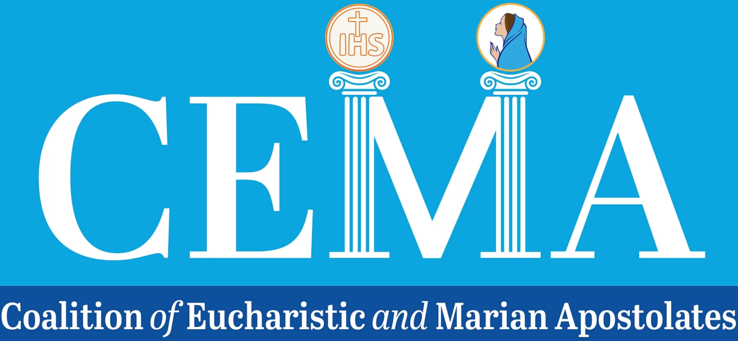by David M. Carollo –


Remember – Let us keep God at the center of our lives!
Placing God Above Blind Conformity
The cyber world in which we live has brought about an interconnected consciousness, defined not by an individual’s focus on God, but on one of uniformity to group thought and constantly shifting norms. Individualism, which is the hallmark of the American ethos, seems to have been put aside to conform to a line of thought that follows ideas established by popular desire and attraction, rather than by concrete foundations. Catholicism does not fully embrace the individualistic principles embraced by a Protestant ethic in America, but the Church has always asked its adherents to use their God given logic to embrace the norms of the Faith; not to follow dictatorially, but to acknowledge the reality that this is the path to God. Our first parents were in direct communication with God before the fall from grace. No better interconnection has ever existed.
The fictional race, the Borg, introduced in the Star Trek TV series, were cyborgs who assimilated cultures and connected the minds of the captive races to “the collective,” so that all were of one thought fed by their leaders. The goal was to bring the population of the universe into the empire by controlling all thought. Armed with superior military capability, and the ability to alter victims’ minds, their mantra was, “resistance is futile.” Science fiction yes, but a scary scenario which is eerily parallel to the electronic media dependence of our present day. Connected in so many ways that it is sometimes hard to know what thoughts are our own, and which are implanted in our minds through the cyber world. Technology is not our enemy–and it is morally neutral–but dependence on being in sync with the popular is fraught with danger.
Happiness Over Pleasure
In his book, The Hacking of the American Mind, Dr. Robert Lustig, a professor of Pediatric Endocrinology at the University of California, San Francisco, where he specialized in neuroendocrinology and childhood obesity, explains well the difference between pleasure and happiness. Pleasure is obtained by satisfying our urges and cannot bring happiness. It is what leads to addiction and to further feed the need for satisfaction, which gets harder to satisfy with each feeding. Happiness does not need to be further fed as it is the definition of satisfaction. Dr. Lustig indicts corporate America for implanting the need for specific products into our minds. He states: “If you’re told by every TV commercial and everybody you know that you’re unhappy, to ‘buy this and you’ll be happy,’ you start to believe them. But it doesn’t make you happy; it actually makes you unhappy. It works for industry because it gets you to buy more, but it doesn’t work for us.” Some will argue that this is just good salesmanship. Marketing does come into play, but when it is accompanied by psychological manipulation, instilling a sense of need for a product or service as opposed to presenting positive benefits for it crosses the line of proper presentation. Children are especially vulnerable to this type of action and can fall into addiction at a young age.
In a Catholic view, pleasure vs happiness can be defined by sinfulness of pleasure seeking as opposed to the satisfaction of finding peaceful happiness in the attainment of grace. There is no such thing as a happy sinner. One who pursues sin denies God Who is the definition of happiness. One who seeks to think outside of the societal parameters set by a secular world finds contentment in the acknowledgement that they are in a state of grace.
Friendships and unions which have the Truth as their common denominator are those that lead to happiness. Marriages and other relationships which have as their basis things other than the laws of God as the foundation often fail or exist as a self-serving endeavor. This holds true for all interactions. If God is not the center, it sits on a foundation of sand, subject to the shifting of the soil. He has established a concrete foundation upon which we are to build our lives. Anything less will ultimately fail.
Our Lady of Fatima’s Warning
At Fatima, Our Lady warned us that departure from the laws of God can never lead to happiness and fulfillment. Today there exists in our world a general sense of mistrust and selfishness which is masked by the group thought that permeates society. We are watching things such as demonic rituals elevated to the status of religion and the use of commercial venues to hold such events occur, something that would have been unacceptable in the past. The constantly shifting mindset of the world has brought these things from unheard of to an accepted level of protected behavior.
We cannot allow a culture which has denied God to direct our thoughts and then our actions. We are the children of Mary. Our thoughts should be in line with hers, in sync with God and not of a godless mindset which choses a secular deity, providing temporary pleasure and never true happiness. We are destined for happiness and contentment which can only be attained by following the path laid out for us through nature, not by redefining nature itself to meet our mistaken hopes of lasting joy. Resistance to the hypnotic forces of the cyber world is not futile. In fact, it is the obligation of everyone to resist the world and look to God for connection. We were given the power to think and determine what are our best choices. Free will is the mark of a human being. God has opened the door to union with Him. We must think individually to choose Him. In this Easter season when we rejoice in the Risen Lord, let us follow His example and seek true happiness.
God bless you and Mary keep you in her Immaculate Heart.


David M. Carollo is the Executive Director of the World Apostolate of Fatima USA/National Blue Army Shrine. He wrote this for his Voice of Fatima column.











